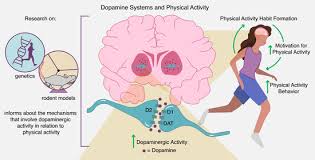Introduction
Habits play a significant role in our daily lives, shaping our behaviors and influencing our overall well-being. Understanding the mechanism of habit formation is crucial for making positive changes and breaking unwanted patterns. In this comprehensive guide, we will delve into the concept of habit cues, explore their role in habit formation, and provide practical strategies for leveraging cues to create and modify habits effectively.
Table of Contents
Introduction to Habit Frmation
- Defining habits and their impact on our lives
- Discussing the benefits of understanding habit formation
- Introducing the habit loop: cue, routine, reward
The Science behind Habit Formation
- Exploring the neurological processes involved in habit formation
- Discussing the role of the basal ganglia and the habit loop
- Understanding the concept of automaticity and habit activation
Identifying Habit Cues:
- Defining habit cues and their significance in habit formation
- Exploring the different types of habit cues: environmental, emotional, and chronological
- Recognizing the cues associated with specific habits in your life
Environmental Cues:
- Understanding how environmental cues trigger habits
- Identifying environmental cues that prompt certain behaviors
- Modifying your environment to support desired habits and discourage unwanted ones
Emotional Cues:
- Exploring the relationship between emotions and habits
- Recognizing emotional triggers that lead to specific habits
- Developing emotional awareness to better understand your habit cues
Chronological Cues:
- Examining the role of time and routine in habit formation
- Identifying chronological cues that prompt habitual behaviors
- Creating intentional schedules and routines to support desired habits
Harnessing the Power of Habit Cues:
- Using habit cues to initiate and reinforce positive behaviors
- Developing strategies to strengthen habit cues and increase habit formation
- Incorporating mindfulness and intentionality in cue recognition and response
Creating Effective Cue-Routine Associations:
- Understanding the importance of linking cues to desired routines
- Establishing clear cue-action associations for habit formation
- Utilizing habit stacking techniques to strengthen cue-response connections
Breaking Unwanted Habits:
- Recognizing and understanding the cues associated with unwanted habits
- Implementing strategies to interrupt and replace negative habit loops
- Developing alternative routines and rewards to break the cycle of unwanted habits
Habit Cue Analysis and Tracking:
- Conducting a habit cue analysis to identify patterns and triggers
- Utilizing habit tracking tools to monitor and assess habit formation progress
- Making adjustments and refinements based on cue analysis and tracking data
Overcoming Challenges in Habit Formation:
- Exploring common challenges in habit formation and cue recognition
- Implementing strategies to overcome resistance, setbacks, and relapses
- Cultivating resilience and self-compassion during the habit formation process
Habit Cues in Different Areas of Life:
- Examining habit cues in various contexts, such as work, relationships, and health
- Understanding how different environments and emotions impact habit cues
- Developing tailored strategies for habit formation in specific areas of life
Sustaining and Evolving Habits:
- Maintaining habits through continued cue recognition and reinforcement
- Incorporating periodic habit evaluations and adjustments for long-term success
- Embracing adaptability and flexibility to accommodate changing circumstances
Seeking Support and
Seeking Support and Accountability:
- Recognizing the value of support in habit formation
- Engaging in accountability partnerships or groups to stay motivated
- Seeking professional guidance from coaches or therapists when needed
Habit Cues and Self-Care:
- Exploring how habit cues can be used to promote self-care
- Identifying self-care habit cues and developing self-nurturing routines
- Cultivating a holistic approach to self-care through cue-based habits
Mindfulness and Habit Cues:
- Understanding the role of mindfulness in habit formation
- Practicing mindful awareness of habit cues and responses
- Using mindfulness techniques to modify habitual behaviors and cultivate intentionality
Conclusion:
- Summarizing the key concepts of habit cues and their role in habit formation
- Emphasizing the importance of cue recognition, intentional action, and reinforcement
- Encouraging readers to harness the power of habit cues to create positive, transformative habits in their lives
Conclusion:
Understanding the mechanism of habit formation and the role of habit cues empowers us to make intentional changes and create lasting habits. By recognizing environmental, emotional, and chronological cues, we can effectively initiate and reinforce positive behaviors while breaking unwanted patterns. Through self-awareness, mindfulness, and strategic cue-action associations, we can shape our habits to align with our goals and values. Remember, habit formation is a journey that requires patience, resilience, and self-compassion. With a deep understanding of habit cues, you have the power to transform your life and cultivate the habits that lead to a fulfilling and successful future.
- Habit Cues Understanding The Mechanism Of Habit Formation - June 9, 2023

